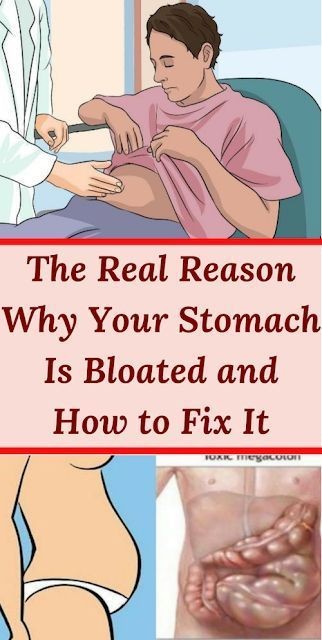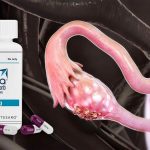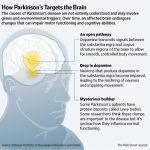
Contents
Why Is One Side of My Stomach Bloated?
Although stomach bloating rarely poses a serious health risk, the cause can be hard to determine.
Various factors may result in a bloated or distended abdomen.
Common reasons for stomach bloating include:
- Increased gas in the intestine
- Small intestinal bacterial overgrowth
- Dysbacteriosis (imbalance of microorganisms in the bowel), sometimes caused by antibiotics
- Food sensitivity
- Lumbar lordosis (increased curvature of the lumbar spine), reducing the abdomen’s gas capacity
Bloating is characterized by a sensation of fullness, tightness, pressure, or trapped gas in the abdomen. It occurs when the stomach expands due to gas buildup or fluid retention, typically after consuming certain foods.
Many individuals experience bloating for months or even years. Diagnosis usually involves a simple discussion and careful review of diet and symptoms related to eating. If abdominal bloating affects your quality of life, consult a gastroenterologist for evaluation.
What are the causes and treatment options for bloating that affects one side of the stomach?
The causes and treatment options for abdominal bloating depend on the specific region of the abdomen affected. Consider the following if you experience bloating in these three abdominal regions:
- Upper abdomen: You may experience bloating soon after eating, often accompanied by nausea and upper abdominal discomfort.
- Causes:
- Stomach ulcers
- Infection of the stomach by Helicobacter pylori bacteria
- Abnormal stomach function, such as slow peristalsis and gastroparesis (slow gastric emptying)
- Impaired stomach dispensability (stretching)
- Functional dyspepsia (recurring indigestion without an obvious cause)
- Treatment options:
- Treat underlying conditions, if any
- Prescription of antibiotics and antacids for 10-14 days
- Diet modifications and medication to improve gut function
- Prevention:
- Consume smaller, more frequent meals
- Avoid spicy/fatty foods, coffee, carbonated beverages, and alcohol
- Mid-abdomen: Bloating, flatus, gas, and/or abdominal pain occur 30 minutes to several hours after eating.
- Causes:
- Inflammatory bowel diseases, such as Crohn’s disease
- Malabsorption syndromes
- Food intolerance
- Celiac disease
- Gluten intolerance
- Small bowel bacterial overgrowth
- Treatment options:
- Dietary alterations
- Symptomatic treatment for underlying conditions
- Prevention:
- Maintain a food diary
- Avoid coffee, carbonated beverages, and alcohol
- Stay hydrated
- Take supplements to address dietary restrictions’ side effects
- Lower abdomen: Generally unrelated to eating and may involve constipation, gas, and bowel movement struggles.
- Causes:
- Irritable bowel syndrome
- Pelvic floor dysfunction
- Treatment options:
- Medications to improve stool consistency and frequency
- Dietary changes, such as increasing fiber and water intake
- Physical therapy for pelvic floor functioning
How can you prevent bloating?
Although a bloated stomach rarely poses a serious health risk, determining the cause can often be difficult. The body can become imbalanced for various reasons, leading to stomach bloating. Here are eight ways to prevent bloating:
- Hydrate and eat potassium-rich foods: Increase water intake and consume potassium-rich foods like bananas, avocados, and sweet potatoes. Potassium and water help remove excess fluid and sodium from the body, which is particularly important during menstruation.
- Include foods that can flush away excess water: Asparagus and other vegetables (such as cucumbers, fennel, celery, and lemon) and fruits (such as berries and watermelon) act as natural diuretics.
- Make walking a part of your healthy lifestyle: Going for a walk can help alleviate gas-related bloating by stimulating the digestive system and aiding in the release of trapped gas.
- Consider drinking herbal teas: Dandelion tea, peppermint tea, or ginger tea can improve gut function and prevent bloating by aiding in proper digestion.
- Try Epsom salt: Epsom salts, which contain magnesium, act as a natural saline laxative and can assist in eliminating excess water weight.
- Limit your salt intake: Reducing sodium consumption, especially from processed foods, can reduce bloating and water retention. Use seasonings like fennel, basil, cumin, and peppermint for flavor instead of salt.
- Use a foam roller in your daily exercises: Foam rolling has several benefits, including improving circulation, calming the nervous system, aiding digestion, and reducing inflammation. Foam rolling, combined with inversions, twists, and self-massage, can provide relief from bloating.
- Check your fiber intake: Gradually increase your intake of fiber-rich foods like whole grains, fruits, and vegetables while drinking enough water to avoid uncomfortable bloating and constipation.
Stomach bloating caused by excessive gas or water is typically uncomfortable but not a serious health issue. Dietary and lifestyle changes, along with medical advice, can help alleviate symptoms.
How is bloating treated?
Treatment for bloating varies depending on the underlying cause of the symptoms. Common treatment options include:
- Antispasmodics: These medications relax the bowel muscles, providing relief from discomfort.
- Probiotics: Dietary supplements containing live bacteria that balance the natural flora of the intestine.
- Antibiotics: Prescribed when a bacterial infection is the cause of bloating.
- Prokinetics: Drugs that speed up the digestive system’s food passage process.
- Antidepressants: Impact brain and gut receptors, reducing bloating and distension in lower dosages used for treatment.
- Psychological therapies: Cognitive-behavioral therapy can be helpful for managing chronic bloating symptoms.
- Low-FODMAP diet: Choosing a low-FODMAP diet, in consultation with a physician or registered dietitian, can alleviate bloating and distension. FODMAPs are short-chain carbohydrates that ferment rapidly and are poorly absorbed in the small intestine.
Bloating is usually caused by harmless factors, but it may indicate a more serious medical issue for some individuals. If bloating is infrequent and doesn’t significantly affect your daily life, medical attention may not be necessary. However, if bloating is frequent, extremely painful, and accompanied by new symptoms, it’s important to consult a doctor.


